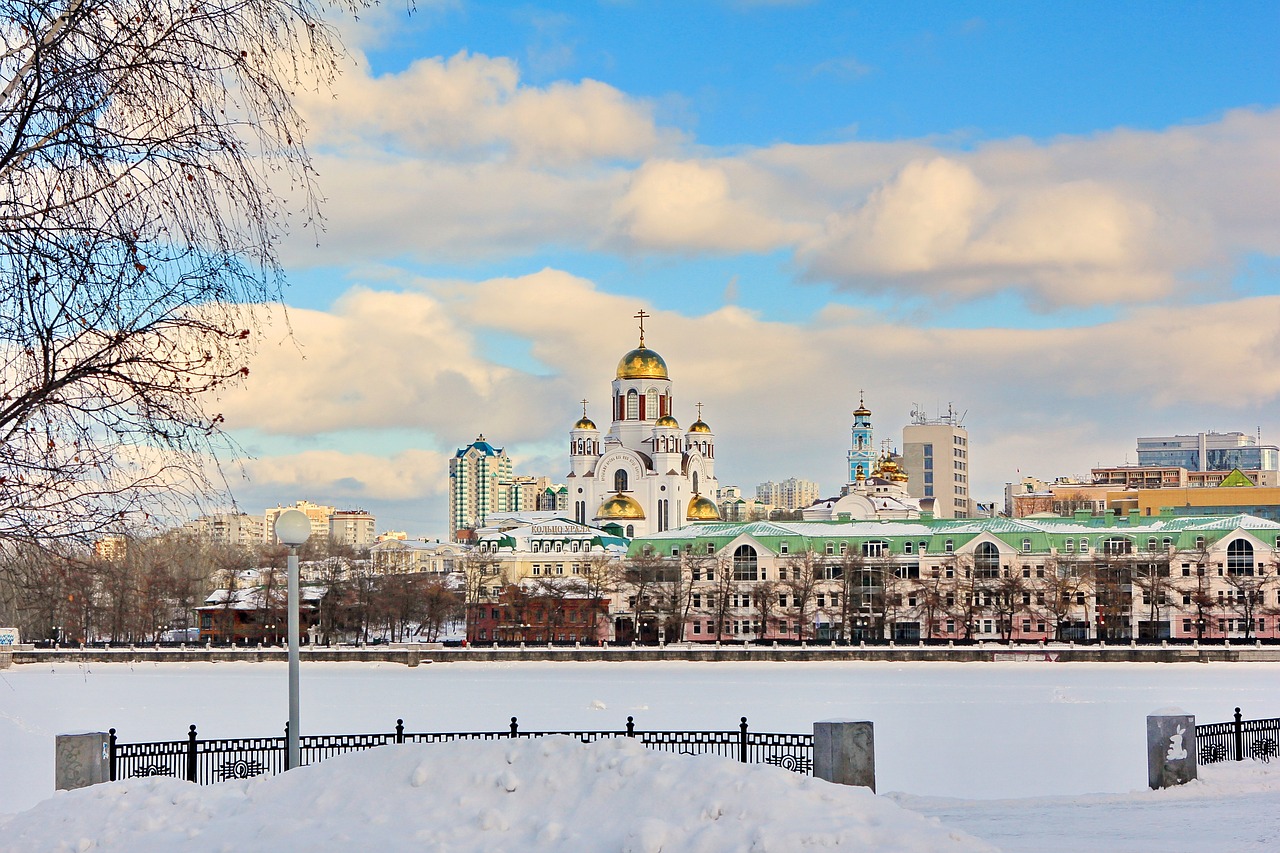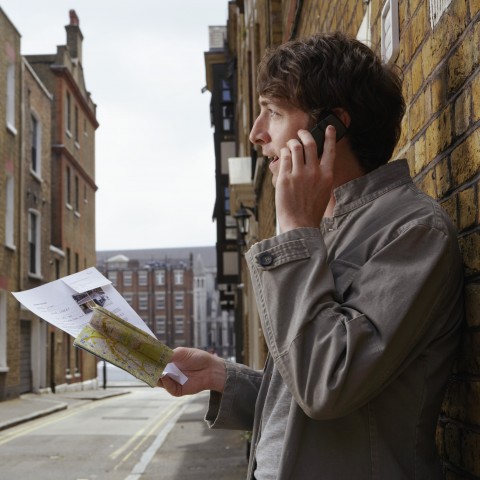
Are you just getting started in Russian? Whether you’re wondering what to learn first or getting lost in Russian grammar, this guide is for you. Here, you’ll discover the fundamental Russian grammar topics, from the word types to verb conjugation, noun cases, basic sentence structure, and other Russian grammar rules.
We recommend that you compare Russian grammar with the grammar of your native language. Take notes concerning what’s common and what’s different. You may be surprised at some of the things you learn, and you might even gain some insight about how your own language works.
Put things into perspective. Explore and discover.
 Table of Contents
Table of Contents
- Exploring Vocabulary
- Uncovering the Grammar Behind Some Parts of Speech
- Sentence Structure
- What’s Next?
1. Exploring Vocabulary
We’ll start by classifying the main building material of the language—the vocabulary. By exploring the parts of speech, you can see how words might be connected with each other in a sentence and what function each of them fulfills.
Russian isn’t much different from other European languages in terms of word categories. And even if some parts of speech might not seem familiar to you, nothing will come as a great shock.
In Russian grammar, nouns name things and people:
- цветок (tsvetok) — “flower”
- мама (mama) — “mother”
Pronouns replace nouns from time to time:
- я (ya) — “I”
- они (oni) — “they”
Adjectives describe things and people:
- хорошие новости (khoroshiye novosti) — “good news”
- умный мальчик (umnyy mal’chik) — “smart boy”
Verbs add some action:
- я танцую (ya tantsuyu) — “I dance“
- кот спит (kot spit) — “the cat is sleeping“
Adverbs modify verbs, adjectives, and other adverbs:
- медленно идти (medlenno idti) — “to walk slowly“
- очень интересно (ochen’ interesno) — “very interesting”
Participles combine the features of both verbs and adjectives:
- бегущий мальчик (begushchiy mal’chik) — “a boy that is running”
- улыбающаяся девушка (ulybayushchayasya devushka) — “a girl that is smiling”
Verbal adverbs give additional action to characterize the main activity:
- Он сидел в углу, читая книгу. — “He was sitting in a corner (and) reading a book.”
(On sidel v uglu, chitaya knigu)
- Она легла спать, думая о нём. — “She went to bed thinking about him.”
(Ona legla spat’, dumaya o nyom)
Numerals count things and people:
- три раза (tri raza) — “three times”
- со второй попытки (so vtoroy popytki) — “on the second try”
Prepositions link words and show how they relate to each other:
- машина у дома (mashina u doma) — “a car at the house”
- картина на стене (kartina na stene) — “a picture on the wall”
Conjunctions connect clauses in complex sentences or homogeneous words:
- Я хотел встать пораньше, но проспал. — “I wanted to get up earlier but overslept.”
(Ya khotel vstat’ poran’she, no prospal) - дети и родители (deti i roditeli) — “children and parents”
Particles modify the nuances of meaning and add some emotion:
- Ну и бардак! (Nu i bardak!) — “What a mess!”
- Вряд ли он там. (Vryad li on tam) — “I doubt that he’s there.”
Interjections add emotional exclamation:
- Ура! (Ura!) — “Hooray!”
- Ай! (Ay!) — “Ouch!”
❗️It’s important to mention that there are no articles in Russian (like “a” or “the”). This is a relief for many learners!

What do you see in the picture? Describe it with 3 nouns and 3 adjectives.Maybe you can even make a phrase with a preposition?
2. Uncovering the Grammar Behind Some Parts of Speech
In this Russian grammar overview, we’ll focus on the parts of speech with the largest grammatical layer underneath. This will ensure that we only discuss topics that you’re likely to encounter when you first start learning Russian.
Nouns
In Russian grammar, noun declension refers to how a noun changes form according to a set of aspects. These aspects are: number, gender, animacy, and case. We’ll briefly discuss each one below.
Number
Like in English, Russian nouns can be singular or plural:
- дом (dom) — “house”
- дома (doma) — “houses”
- машина (mashina) — “car”
- машины (mashiny) — “cars”
Many uncountable nouns don’t have a plural form:
- рис (ris) — “rice”
- мука (muka) — “flour”
Gender
Most Russian nouns are also divided into three genders: masculine, feminine, and neuter.
- кот (kot) — “cat” [m]
- сестра (sestra) — “sister” [f]
- молоко (moloko) — “milk” [n]
There are, however, a few nouns that practically have no gender because they are only used in the plural form. There are similar words in English, as well:
- штаны (shtany) — “pants”
- ножницы (nozhnitsy) — “scissors”
- очки (ochki) — “glasses”
The good news about Russian gender is that it’s pretty easy to identify a noun’s gender by its ending:
- most masculine nouns end with a consonant or -й: стул, музей
- most feminine nouns end with -а/я or -ь: собака, песня, ночь
- most neuter nouns end with -о/е: окно, море
➤ Keep in mind that there are exceptions to some of these rules, which you’ll discover with time. That said, you’ll only need four minutes to figure out the basics of how Russian genders work. Check out our video about Genders on RussianPod101.com.
Animacy
Animate nouns usually denote people or animals:
- учитель (uchitel’) — “teacher”
- волк (volk) — “wolf”
Inanimate nouns include non-living objects and abstract things:
- телефон (telefon) — “phone”
- политика (politika) — “politics”
Cases
There are six cases in Russian that we use to show how words are related to each other. The ending we use depends on the gender and number of a noun, and whether it’s animate or inanimate (for Accusative only).
Here’s an example of what the Russian case system looks like:
| Case | Singularновая машина — “a new car” | Pluralновые машины — “new cars” |
| Nominative | новая машина (novaya mashina) | новые машины (novyye mashiny) |
| Genitive | новой машины (novoy mashiny) | новых машин (novykh mashin) |
| Dative | новой машине (novoy mashine) | новым машинам (novym mashinam) |
| Accusative | новую машину (novuyu mashinu) | новые машины (novyye mashiny) |
| Instrumental | новой машиной (novoy mashinoy) | новыми машинами (novymi mashinami) |
| Prepositional | о новой машине (o novoy mashine) | о новых машинах (o novykh mashinakh) |
➤ You can also check out our list of 50 Common Russian Nouns to start expanding your vocabulary. Vocabulary holds the bricks you need to build your sentences!

How would you say “a new car” in Russian?
Adjectives
The form of Russian adjectives must agree with the number, gender, and case of nouns. You can analyze the cases table once again to see how adjectives change their ending for each case.
There are a couple of additional features that characterize Russian adjectives, such as their full and short forms and the different categories they can be split into. But what we’ll focus on here is the way we compare things using adjectives.
Degrees of comparison
Most descriptive adjectives have two degrees of comparison: comparative and superlative.
- На улице тепло. — “It’s warm outside.”
(Na ulitse teplo)
- Становится теплее. — “It’s getting warmer.” [comparative]
(Stanovitsya tepleye)
- Это самое тёплое место. — “It’s the warmest spot.” [superlative]
(Eto samoye tyoploye mesto)
➤ See our list of the Most Common Adjectives to learn some more new words. They’ll combine well with the nouns you discovered in the previous chapter!
Verbs
No need to sugarcoat it: Russian conjugation can be tough. However, there are some patterns that verbs follow, and if you remember them, conjugation won’t seem so overwhelming anymore.
Moods
There are three moods in Russian: indicative, imperative, and conditional.
Using them, we can either mention a fact, give an order to another person, or talk about a hypothetical situation:
- Я сижу дома. (Ya sizhu doma) — “I’m staying home.” [indicative]
- Иди домой! (Idi domoy!) — “Go home!” [imperative]
- Я бы поискал, если бы был дома. — “I would’ve looked for it if I’d been home.” [conditional]
(Ya by poiskal, yesli by byl doma)
Voices
Russian verbs have two voices: active and passive.
- Я построил дом. — “I built a house.” [active]
(Ya postroil dom)
- Этот музей был открыт в 1950 году. — “The museum was opened in 1950.” [passive]
(Etot muzey byl otkryt v 1950 godu)
Aspects
Russian verbs also have two aspects: imperfective and perfective.
Aspects are used to differentiate between actions that are ongoing or habitual (imperfective) and those that have already been completed (perfective).
- Я гулял в парке каждый день. — “I used to walk in the park every day.” [imperfective]
(Ya gulyal v parke kazhdyy den’)
- Я погулял с собакой. — “I’ve walked my dog.” [perfective]
(Ya pogulyal s sobakoy)
➤ Number, person, and gender also affect the verb conjugation. Find more information about this, as well as a detailed table with verb endings and examples, in our article about Russian Verb Conjugation.
➤ Learn the 50 Most Common Verbs so you can talk about basic actions in Russian.

Я бы каждый день гулял в этом парке.
“I would walk in this park every day.”
3. Sentence Structure
The next set of Russian language grammar rules we’ll discuss have to do with sentence structure. This refers to how sentences are formed in Russian.
Word order
The word order is pretty flexible in Russian. That is to say, the words can generally be rearranged freely without changing the meaning of the sentence.
- Вчера я смотрел фильм. — literally: “Yesterday I watched a movie.”
(Vchera ya smotrel fil’m) - Я вчера смотрел фильм. — literally: “I yesterday watched a movie.”
- Я смотрел фильм вчера. — literally: “I watched a movie yesterday.”
Sometimes we use the word order to emphasize a specific part of the sentence or to make it sound more poetic. It works exactly like English inversion. However, it’s easier for a beginner to stress a word with intonation, rather than by rearranging the word order. The word order you’re used to in English—SVO (Subject + Verb + Object)—would work just fine in most cases.
➤ The flexible word order in Russian doesn’t mean the order can be random though. To learn about its nuances, please check out our article about Russian Word Order.
Questions
In Russian, we also use the question words (where, when, who, etc.) to form questions, but we don’t use inversion. We don’t have auxiliary verbs either. The only means of forming a question in Russian is your intonation. Here are a couple of basic rules:
- With the question words, we start high and use a falling intonation at the end of the sentence.
Где здесь метро? — “Where is the subway entrance around here?”

- If there are no question words, we emphasize the word we want to draw attention to by raising the intonation.
Ты хорошо отдохнул? — “Did you rest well?”

Obviously, Russian intonation is not as simple as that, but these two basic patterns are a good place to start. Anyway, this topic is best learned through active listening and practice, rather than through text.
➤ See our vocabulary list of the Top 15 Russian Questions You Should Know and listen to how they’re pronounced. How does the intonation change in each question?

The man is looking for the subway. What should he ask his Russian friend?
Negation
A simple way to add negation in Russian is to place не (ne) in front of the word you’d like to negate.
- Я не дома. (Ya ne doma) — “I’m not home.”
- Она не врач. (Ona ne vrach) — “She’s not a doctor.”
- Я не курю. (Ya ne kuryu) — “I don’t smoke.”
Double negation is common in Russian as well. This means that we can combine не with negative pronouns (nowhere, nobody, nothing, etc.).
- Я никогда не был в Японии. — “I’ve never been to Japan.”
(Ya nikogda ne byl v Yaponii)
- Он ничего не нашёл. — “He hasn’t found anything.”
(On nichego ne nashyol)
Another peculiar word is нет (net). It can be used in a variety of contexts:
- Здесь ничего нет. — “There is nothing here.”
(Zdes’ nichego net)
- «Ты ел?» (Ty yel?) — “Have you eaten?”
«Нет». (Net) — “No.”
- Ты его видел или нет? — “Have you seen him or not?”
(Ty ego videl ili net?)
4. What’s Next?
Once you master all of these topics, you’ll have covered the biggest chunk of Russian grammar. Have you taken notes about what Russian grammar has in common with your native language? Have you spotted many differences?
Learning the grammar of another language might be a long journey, but we can make it enjoyable. If you happen to have any questions about how to conjugate verbs, put words in order, or differentiate between an adjective and a participle, our teachers at RussianPod101.com will help you dispel any doubts.
With our Premium PLUS service, MyTeacher, you get personal one-on-one coaching with a tutor. Feel free to ask any grammar-related questions. If you want to practice a specific topic, you’ll receive some grammar assignments, vocabulary exercises, and voice recording tasks to improve your pronunciation. Give it a try!
Eager to learn more? This material will help you move one more step forward with your Russian:
- “Is Russian Hard to Learn?” Find out in our article!
- You might also find our list of “Habits for Highly Effective Language Learners” useful if you’re new to language learning.
Happy learning with RussianPod101!










